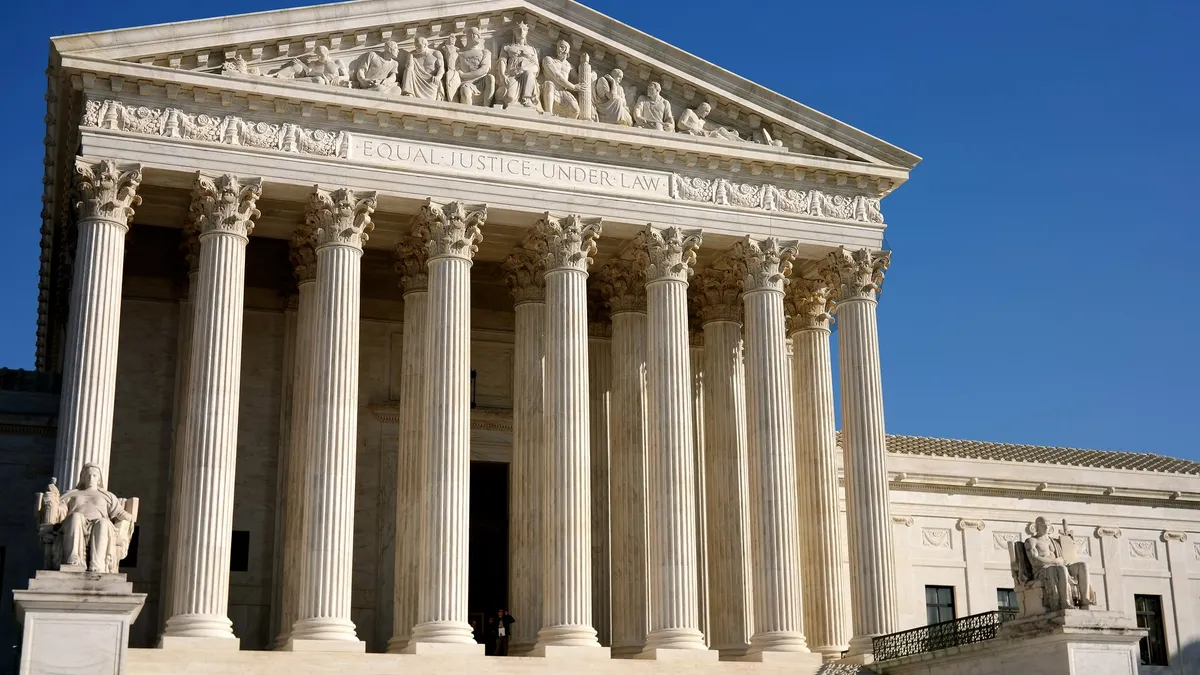Dive Brief:
- The U.S. Supreme Court in a 5-4 decision upheld a Pennsylvania law giving it general personal jurisdiction over companies that have registered with the state as a condition of doing business there.
- The ruling in Mallory V. Norfolk Southern means a worker who alleges he got cancer while working for Norfolk Southern Railway can have his complaint heard in a Pennsylvania court even though the company is based in Virginia and the worker never worked for the company in Pennsylvania.
- Norfolk Southern argued, and lower courts agreed, that allowing the suit to be heard in a state that has only minimal connection to the matter violates the company’s 14th amendment due process rights. But the top court disagreed, saying the company consented to general personal jurisdiction by the state when it registered to do business there.
Dive Insight:
The key precedent is a 1917 case, Pennsylvania Fire v. Gold Issue, said Associate Justice Neil Gorsuch, who wrote the majority opinion. In that case, an out-of-state company consented to in-state lawsuits in exchange for the right to do business in the state.
In Norfolk Southern’s case, the company owns thousands of miles of tracks and several facilities in Pennsylvania. In 1998, it registered as a foreign corporation doing business there, and as part of that, it consented to the state having general personal jurisdiction over it.
Norfolk Southern argued that a 1945 case, International Shoe v. Washington, showed that the due process clause allowed states to have jurisdiction in two types of cases, one in which the conduct at issue occurred in the state, known as specific jurisdiction, and the other when the company was headquartered in the state, known as personal jurisdiction, neither of which applies in this case.
In his opinion, Gorsuch said those two conditions apply to companies that don’t consent to be sued in the state. Norfolk Southern, on the other hand, consented to lawsuits when it registered with the state.
“The two precedents [Pennsylvania Fire and International Shoe] sit comfortably side by side,” Gorsuch wrote.
Associate Justice Samuel Alito, in a concurring opinion, said he agreed Norfolk Southern’s due process rights aren’t being violated, but by having jurisdiction, Pennsylvania might be violating the Constitution’s commerce clause, which protects the federal government’s jurisdiction over interstate commerce.
In her dissenting opinion, Associate Justice Amy Coney Barrett questioned whether Norfolk Southern actually gave consent or whether it conceded to it as a condition of doing business in the state. But, more importantly, the decision opens the door to all states assuming personal jurisdiction over companies by remodeling their foreign-corporation registration requirements to look like Pennsylvania’s.
“By relabeling their long-arm statutes, states may now manufacture ‘consent’ to personal jurisdiction,” said Barrett, who was joined by Chief Justice John Roberts and associate justices Elena Kagan and Brett Kavanaugh.











